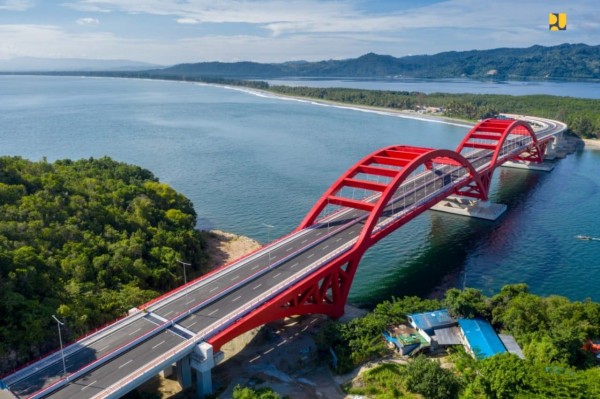Appreciating the Government’s Policy to Develop Papua
The development of Papua is one of President Jokowi’s flagship programs. The community appreciates the various development policies because they have been proven to have a positive impact on the people.
The Papua region has been a concern of President Joko Widodo since he took office in 2014. Jokowi gave priority to developing Eastern Indonesia in the context of inter-regional connectivity in Papua.
Jokowi’s seriousness in developing Papua is certainly not kidding. One of the policies that kicked off was the implementation of One Price Fuel. Where previously the Papuan people had to buy fuel at a price that was much more expensive than areas outside Papua. In addition, the Government has also recruited 1,000 indigenous Papuan youths to join the State-Owned Enterprises (BUMN).
In the sea transportation sector, Jokowi has also built a number of ports, namely, Depapre Port, Nabire Port, Pomako Port, Moor Port and Serui Port for Papua Province and Kaimana Port in West Papua Province.
We need to know that one of the goals of the development promoted by the Jokowi government is to improve the welfare of the people. Of course, it is not an easy thing for Indonesia to develop simultaneously for all regions considering the differences in resources, culture and area.
Currently, Papua is still a region of Indonesia that has a high poverty rate. The Central Statistics Agency (BPS) recorded that the percentage of poor people in Papua had increased by 0.09% points, from 26.55% in September 2019 to 26.64% in March 2020. This means that this figure shows that the number of people living below the poverty is more than a quarter of the population.
The quality of spending is also an important key in accelerating regional development. The quality of spending is not good, empirically in line with the quality of human resources in the bureaucracy, the quality of spending can be measured through several variables, namely spending priorities, timeliness, spending allocation, accountability and transparency and effectiveness.
Since 2002, the provinces of Papua and West Papua have received special autonomy funds amounting to Rp. 94.24 trillion, which is increasing almost every year. The special autonomy fund is one of the instruments used by the central government to accelerate development in the two provinces.
Indonesian President Joko Widodo has also issued Presidential Instruction (Inpres) Number 9 of 2020 concerning the acceleration of development in Papua and West Papua. The policy aims to consolidate and optimize the internal coordination pattern of the Ministry and the Papua Regional Government.
Jokowi also issued Presidential Decree (Keppres) Number 20 of 2020 concerning the Integrated Coordination Team for the Acceleration of Welfare Development in Papua and West Papua. The coordination team was chaired by Vice President Ma’ruf Amin with Daily Chair Suharso Monoarfa as Minister of Bappenas.
The Jokowi era government prioritized focusing on optimizing the ministry’s internal coordination to understand the ‘taste’ of Papua. This is the government’s choice of policy in dealing with problems on Earth of Cenderawasih.
On a different occasion, General Pol Listyo Sigit Prabowo described the government’s efforts in the Jokowi era in building the Earth of Cenderawasih. According to the 4-star general, currently there are several problems that hinder development programs and improve welfare in Papua, one of which is the lack of socialization of these efforts.
Sigit explained several developments that have been carried out by the government, namely several bridges, National Border Posts (PLBN) RI and Papua New Guinea, airports, ports and markets.
Meanwhile, other infrastructure developments will be continued, namely the Trans Papua road connecting West Papua and Papua, stretching from Sorong to Merauke with a length of 4,330.07 km.
Then the construction of the Palapa Ring which spans 51 regencies/cities, a gas engine power plant (PLTMG), a hydroelectric power plant, a mini hydro power plant, the construction of the RI-Papua New Guinea border road, the construction of the Lukas Enembe Stadium and others. In terms of education, the government has also built houses for teachers, dormitories for students and college students as well as providing assistance for the rehabilitation of school infrastructure.
Regarding the lack of socialization of the government’s efforts in developing Papua, Sigit said that this could be resolved through face-to-face meetings and dialogue involving indigenous peoples.
The success of developing Papua must indeed be maintained, simply because Papua is an integral part of the Unitary State of the Republic of Indonesia which must be maintained for the sake of the sovereignty of the Indonesian nation.
